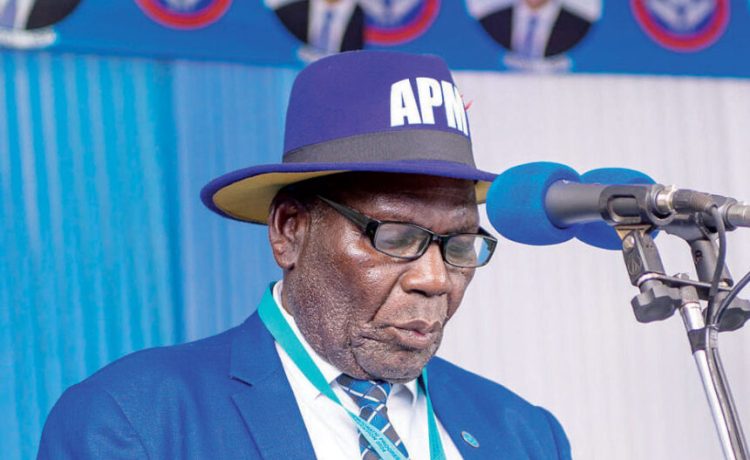In the intricate web of Chihana politics of desperation, the recent events surrounding the Democratic Progressive Party (DPP) and its negotiations with Northern politicians unveil a striking irony that compels reflection. The DPP, once brazenly dismissive of its Northern constituents, is now desperately seeking to forge alliances with the very politicians it previously marginalized. Central to this paradox is George Chaponda, a notorious figure who, during his tenure, openly proclaimed that the DPP could thrive without the votes and support of the North. His controversial remarks, made on MIJ FM Radio in 2014, ignited a firestorm of debate about the party’s authentic attitude toward Northern Malawi and its people.
Chaponda’s statement back then was a clear indication of DPP’s political scheme, which downplayed the influence of the Northern vote. He asserted that the DPP would win subsequent elections without people from the North voting for it. “Much as people would love to fool themselves, but people from the North have little impact on the political landscape of DPP as a party and Malawi in general. Yes it is true that we need to have national appeal, but we won the 2009 elections not because of people from the North. This is why our President Peter Mutharika settled for Chilima not Goodall Gondwe as you are asking”.
It eventually became clear that Chaponda’s declaration embodied a broader sentiment within party lines. Similarly, other senior DPP officials echoed this tone. Francis Mphepo, who was Presidential Advisor on Political Affairs and also the DPP’s acting Secretary General at the time, reiterated the party’s confidence in winning elections without Northern support. These comments, dripping with an almost contemptuous disregard, laid the groundwork for a narrative that dismissed the North as politically inconsequential.
The party’s inclination to alienate Northern politicians and their constituents was further exemplified by the incendiary remarks from Patricia Kaliati, the former Minister of Gender. When Norman Nyirenda addressed the stark disparity in development between the North and the rest of the country, Kaliati’s response was harsh. Her painfully tribalistic retort urged him and fellow Northerners to leave Lilongwe and return to their homeland to undertake development, echoing a deeper DPP ethos that marginalized the North while consolidating power elsewhere.
However, as the 2025 elections loom near, the DPP’s stance appears to have undergone a dramatic shift. In a surprising turn of events, Enoch Chihana, leader of the almost politically negligible AFORD, crafted what he termed the “Northern Alliance Block.” This umbrella group is ostensibly designed to unite Northern interests and promote a political union with the DPP ahead of the upcoming elections. Yet, what remains disconcerting is the DPP’s patronizing gesture of placing Chaponda—who sparked the original disdain toward Northern voters—at the forefront of these negotiations. This move feels like a mockery, a reminder of the party’s past arrogance rather than a step towards genuine reconciliation.
The irony of the situation cannot be overstated. What was once a dismissive attitude toward the North has mutated into a desperate plea for partnership. The DPP’s current actions suggest that while they may have previously believed they could thrive independently of Northern support, the political landscape is shifting. As sentiments change, the necessity for broader alliances becomes apparent—a stark contrast to the bravado exhibited in previous years.
As the DPP embarks on this alliance with AFORD, embodied by Chihana’s illusory Northern Block, one cannot help but wonder whether sincerity underpins these negotiations. Are these gestures born of genuine reconciliation, or are they merely strategic moves calculated to secure electoral advantage?
The DPP’s narrative, once steeped in the belief that Northern voters were insignificant, now contradicts itself in a bid to secure political survival. The question remains: can true alliances blossom from a history of disdain, or are these merely fragile coalitions held together by political expedience?












